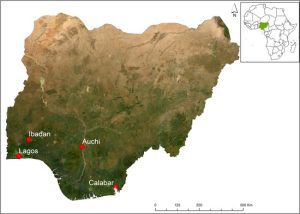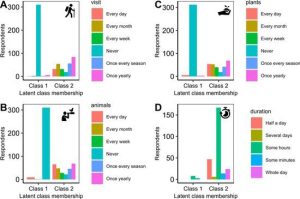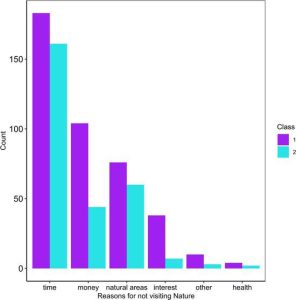A groundbreaking study conducted by Adewale Awoyemi, Head of the IITA Forest Center, and his team of Spanish collaborators sheds light on the alarming extinction of human experience with nature in Nigerian urban areas.
The research, published in a transdisciplinary paper, explores the correlation between the decline of natural spaces and species and the dwindling interaction of humans with the environment, particularly in the Afrotropics.
In an era dominated by digital entertainment, the study highlights how people have shifted away from traditional outdoor activities such as hiking, camping, and birdwatching to sedentary pursuits like watching television and surfing the internet. This disconnection from nature poses significant challenges to both physical and mental health, contributing to public health issues and environmental degradation.



Analyzing data from 600 respondents across four southern Nigerian cities, including Auchi, Calabar, Ibadan, and Lagos, the researchers evaluated the level of disconnection between urban populations and nature. The findings reveal a disturbing trend of diminishing contact with natural spaces, with factors such as income, time constraints, and dwindling green areas cited as primary reasons for the decline.
One of the key revelations of the study is the significant disparity in nature connectedness among different cities, with Lagos residents exhibiting less interaction with nature compared to those in Ibadan.
This disparity is attributed to the rapid urbanization and loss of natural habitats in economic hubs like Lagos.
https://www.sciencedirect.com/science/article/pii/S0921800924000028
Moreover, the study underscores the importance of birds as indicators of environmental health and promoters of human-nature interconnectedness. Areas with greater bird diversity were found to foster a stronger connection with nature among residents.
The researchers advocate for tailored interventions to address the extinction of nature experience, emphasizing the role of education and environmental awareness programs.
Prof. Ibáñez-Álamo from the University of Granada stresses the importance of promoting environmental education through organizations like the Ibadan Bird Club to bridge the knowledge gap on biodiversity and its implications.
As African cities continue to grapple with rapid urbanization and biodiversity loss, this study provides valuable insights into the urgent need to prioritize human-nature interactions and conservation efforts in the Global South.
By fostering a deeper connection with nature, communities can work towards mitigating the adverse effects of urbanization on both human well-being and environmental sustainability.
Story By Esther Omopariola





